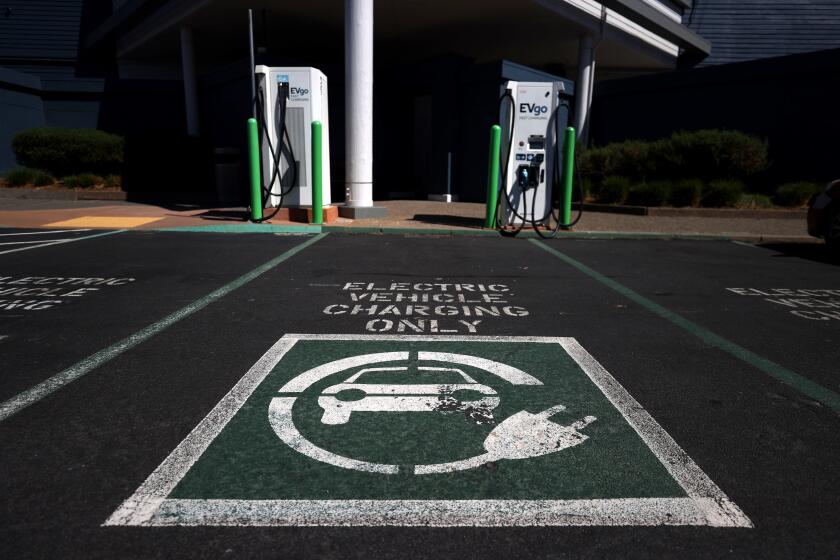House bill takes aim at auto safety defects
Responding to Toyota Motor Corp.’s sudden acceleration crisis, a key House committee is preparing sweeping legislation that would reshape auto safety regulations and significantly boost potential fines against automakers for violating safety laws.
The legislation, drafted by Rep. Henry Waxman (D-Beverly Hills) and Rep. Bobby Rush (D-Ill.), would create at least half a dozen new safety standards and rules — including a requirement that all new motor vehicles have so-called black boxes, or event data recorders, and brake override systems.
“This gives the National Highway Traffic Safety Administration the ability to protect the public and to deal with concerns that have been raised by Toyota and other manufacturers,” Waxman said in an interview.
The legislation, titled the Motor Vehicle Safety Act of 2010, would represent one of the biggest overhauls of federal motor vehicle safety regulation in a generation. The most recent comparable action came a decade ago, when Congress passed new safety rules in the aftermath of the rollover problem involving Ford Explorers equipped with Firestone tires.
The bill is likely to face opposition from automakers, in particular over a provision that would remove the existing $16.4-million cap on civil penalties against vehicle manufacturers for violations of safety laws and boost the fine for each violation to $25,000, from the current $6,000.
The change would create the potential for fines in the range of tens of billions of dollars, because federal fines are typically assessed on each vehicle produced by a manufacturer that is involved in a violation of the rules.
NHTSA’s recent record $16.4-million fine against Toyota for violations of U.S. law could have been as high as $57.5 billion if the proposed Waxman law had been in effect at the time.
“NHTSA ought to have the ability to decide what is an appropriate fine,” Waxman said.
The proposed law will be considered in a hearing on May 6 by the House Energy and Commerce subcommittee on commerce, trade and consumer protection.
The measure has several other provisions that may draw protests from the auto industry. It would create a new tax of $9 per new vehicle after three years, payable by the manufacturer, to help fund NHTSA and some of the new requirements of the law. The tax could raise more than $100 million a year based on current sales figures.
Auto executives who knowingly provide false information to federal regulators would be liable for fines of up to $250 million under the bill.
Beyond fines and taxes, the bill would dramatically overhaul the federal government’s ability to oversee rapidly advancing electronics technology that is at the heart of new vehicles. It would create a center for vehicle electronics and emerging technologies.
It also would create a series of requirements that appear aimed at a number of specific shortcomings that were identified in Toyota vehicles that failed to prevent sudden acceleration.
The measure would require automakers to adopt so-called brake overrides, which cut engine power back to idle when the brake pedal is depressed. It would also set separate new standards on the placement of foot pedals, keyless ignition systems and transmission shift controls.
In addition to requiring event data recorders, the bill ensures public access to currently confidential early warning data reported by automakers and creates a new hotline for mechanics and others to confidentially report safety defects.




